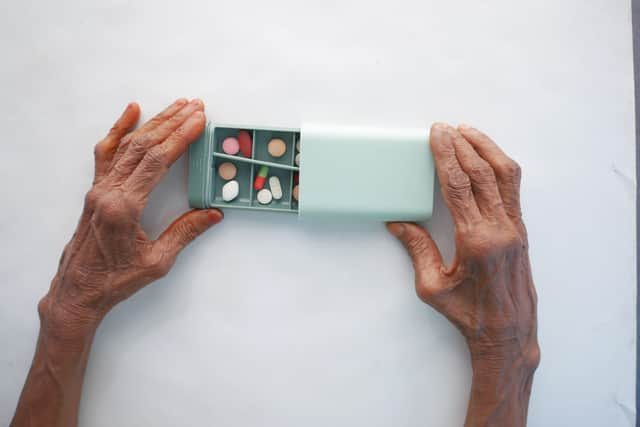NHS to suggest art and music classes instead of prescription drugs in bid to tackle addiction
This article contains affiliate links. We may earn a small commission on items purchased through this article, but that does not affect our editorial judgement.
and live on Freeview channel 276
In a bid to combat prescription drug addiction, millions of patients will be given assistance to wean themselves off antidepressants and painkillers under a new NHS England plan. Following national guidance, GPs are to stop writing repeat prescriptions for patients who have developed a dependency on common drugs.
Instead of prescribing patients painkillers like tramadol or codeine, the NHS England plan suggests sending patients to classes in art, music, or gardening to prevent an opioid crisis similar to the one in the US, reported The Times.
Advertisement
Hide AdAdvertisement
Hide AdThe report said every year, one in four adults are prescribed potentially addictive drugs, including sleeping pills, strong painkillers and benzodiazepines such as diazepam, better known as Valium, to treat anxiety.
According to a previous report by The Times, at least one in every six adults in the UK was prescribed antidepressants in 2021/22 (8.3 million in England alone), continuing an upward trend that shows no signs of slowing.
In the previous year, 5.23 million patients used opioids, a decrease from 5.68 million in 2019. It is estimated that the decrease in prescriptions, which has been linked to increased concerns about addiction, has saved nearly 350 lives and prevented over 2,100 harmful incidents.
And since the NHS led the implementation of key recommendations outlined in a 2019 review by Public Health England, the number of benzodiazepines and sleeping pills (z-drugs) prescribed in England has also decreased by 170,000 (13.9%) and 95,000 (10.2%), respectively.
Advertisement
Hide AdAdvertisement
Hide AdAccording to the review, one in every four adults in England was prescribed benzodiazepines, z-drugs, gabapentinoids, opioids for chronic non-cancer pain, or antidepressants in 2017/18.
Now, the NHS is assisting integrated care boards, community health services, public health teams, and primary care networks in developing personalised and innovative support for patients who have used addictive drugs or have a condition that would have previously resulted in them being prescribed such a drug, in order to better manage their long-term physical and mental health.


Medicines come with risks
Professor Sir Stephen Powis, National Medical Director for NHS England said: “We know that patients who require prescriptions for potentially addictive drugs can become dependent and struggle with withdrawal, and this new action plan helps NHS services to continue positive work in this space having already slashed opioid prescriptions by almost half a million over the last four years.
“The plan gives clear guidance to support patients who no longer need these drugs to provide them with routine medicine reviews and move them on to other, alternative therapies where appropriate, saving both lives and taxpayer money in the process.”
Advertisement
Hide AdAdvertisement
Hide AdProfessor Tony Avery OBE, National Clinical Director for Prescribing at NHS England said: “Medicines offer a fantastic range of tools for NHS staff to provide patient care and treatment that can be positively life-changing, or even life-saving.
“However, we need to be alert to the risks of some medicines, particularly when used over a long period of time, and the framework we are publishing today empowers local services to work with people to ensure they are being effectively supported when a medicine is no longer providing overall benefit”.


One example that has already demonstrated the benefits of this step-change is ‘The Living Well with Pain Programme’ in Gloucestershire, which has taken a new approach to supporting people with long-term non-cancer pain by focusing not only on managing the impact of the pain but also people’s mental health – helping to reduce reliance on pharmaceuticals.
Different types of support to improve wellbeing
An evaluation of the programme over the past four years has shown a significant improvement in the mental health and wellbeing of more than eight in 10 (83%) of the people who participated in the initiative.
Cathy Stannard, clinical lead for NHS Gloucestershire’s Pain Transformation Programme, said: “In Gloucestershire we are working to change the way we think about pain and how we prescribe medications.
